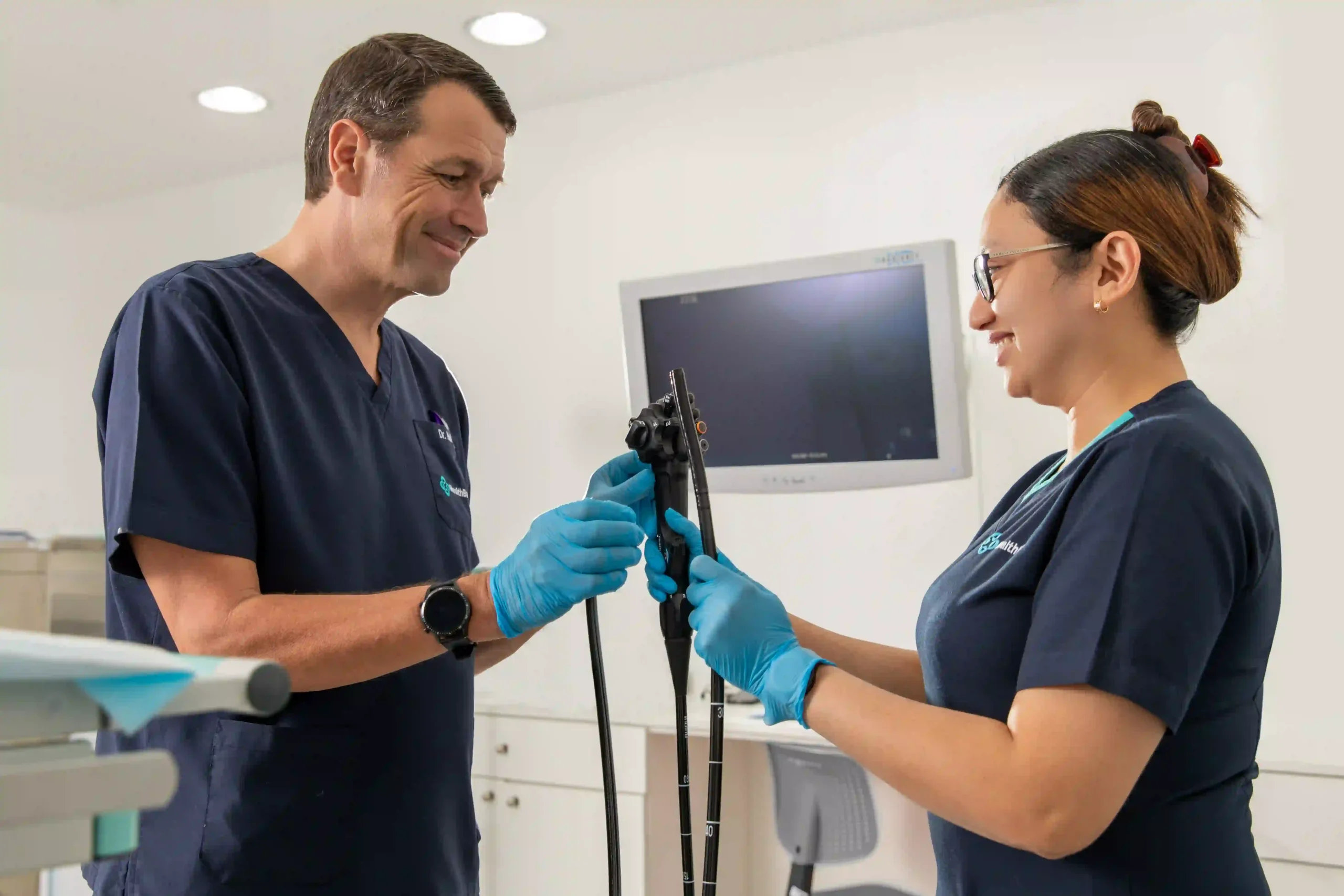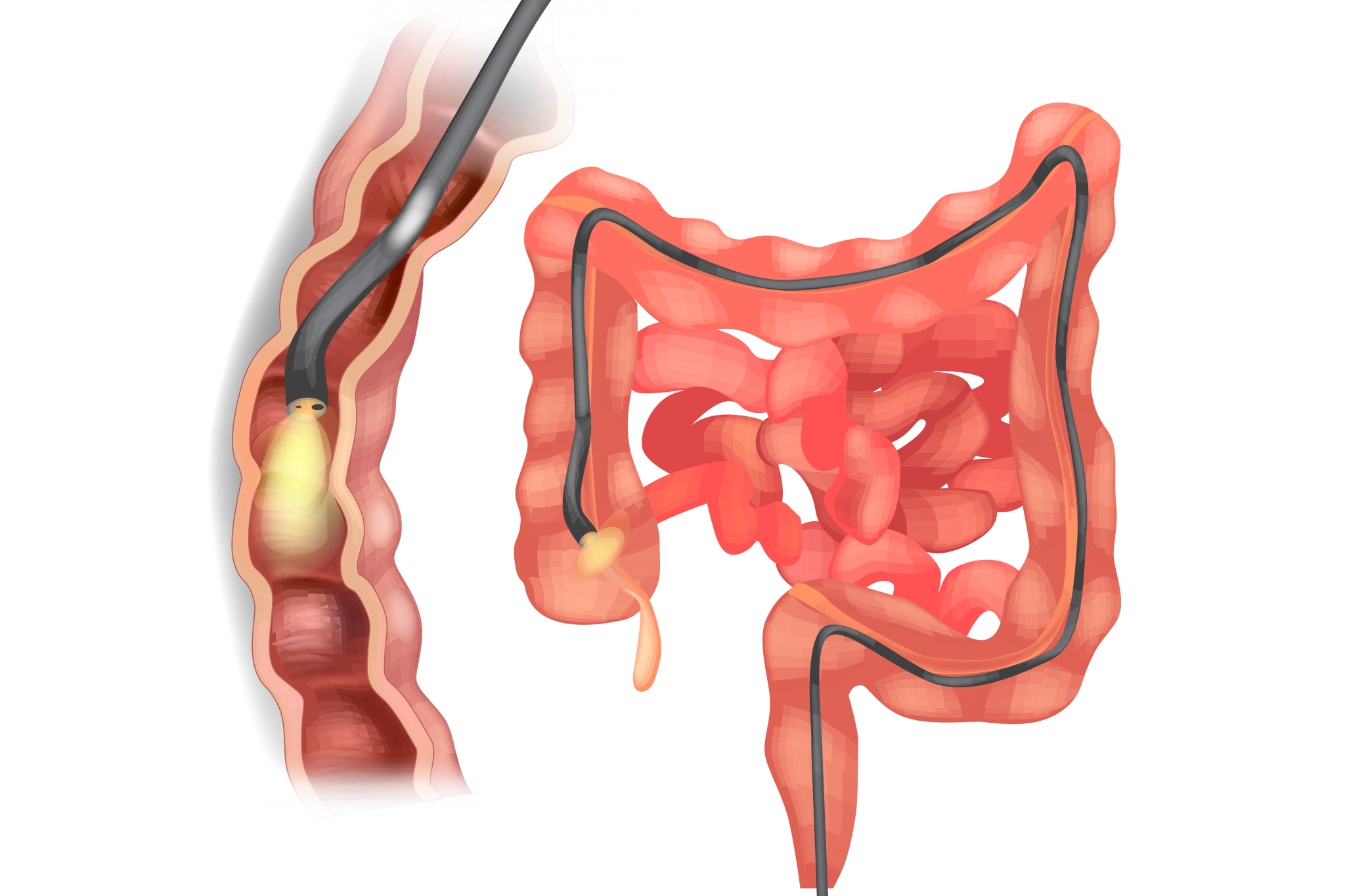
A colonoscopy is a test to examine the lining of the rectum, colon, and the very end part of the small intestine (ileum). It involves passing a thin flexible camera through the anus into the large intestine or colon. This allows full-color views of the entire lining of the colon so abnormal areas such as inflammation, polyps, and cancers can be clearly visualized. The test also allows biopsies (tiny pieces of tissue) to be taken from any abnormal areas to look at under the microscope. Finally, almost all polyps can be removed during the test – so colonoscopy is not only a diagnostic test but can also treat problems. A colonoscopy is an excellent test for diagnosing problems affecting the rectum, colon, and ileum such as ulcerative colitis, Crohn’s disease, diverticular disease, hemorrhoids, colonic polyps, and colon cancer. Colonoscopy is almost always performed with deep sedation so you will be asleep and not experience any pain during the test. Many people are anxious at the thought of a colonoscopy but it is a safe and painless procedure.

The Procedure
To prepare for a colonoscopy you will be given bowel prep medicine to take the day before that acts as a strong laxative. For some, this can be the most unpleasant part of the test, but it is necessary to have an empty colon for the test to be worthwhile and safe. You will also be asked to follow a special (mainly liquid) diet the day before the test to help clear out solid poop from the bowel. You will be given detailed instructions on the diet and how to take the bowel prep medicine.
Dr Neil works closely with expert anesthesiologists who will safely administer deep sedation for the procedure and monitor you carefully throughout the test. As a result, you will sleep during the procedure and will not experience any pain during the test.
A thin camera – it is about the thickness of a little finger – is then passed into the anus with plenty of lubrication. During the test, the camera is passed gently around the whole of the large intestine and into the end of the small intestine. Tissue samples or biopsies may be taken during the test to give further information – this is a painless and very safe procedure. If any polyps are identified, they can usually be removed during the procedure if safe to do so. The test is usually completed in 25-30 minutes.
After the test, you may experience some trapped gas and bloating although most people have no symptoms at all. Passing gas after the test can help get rid of any excess air and bloating.
You will go home around 2 hours after the test. As you will have been given sedation you should not drive home yourself and should get home with a friend or relative or in a taxi.

For professional Colonoscopy related advice and queries feel free to get in touch with Dr Neil
